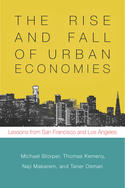Pew Charitable Trusts recently posted an analysis of population projections that show several states with stagnant to declining workforces.
This means that for nearly 20 states, it’s basically impossible to add jobs in the future. How can you add more jobs with fewer workers? read more »






















